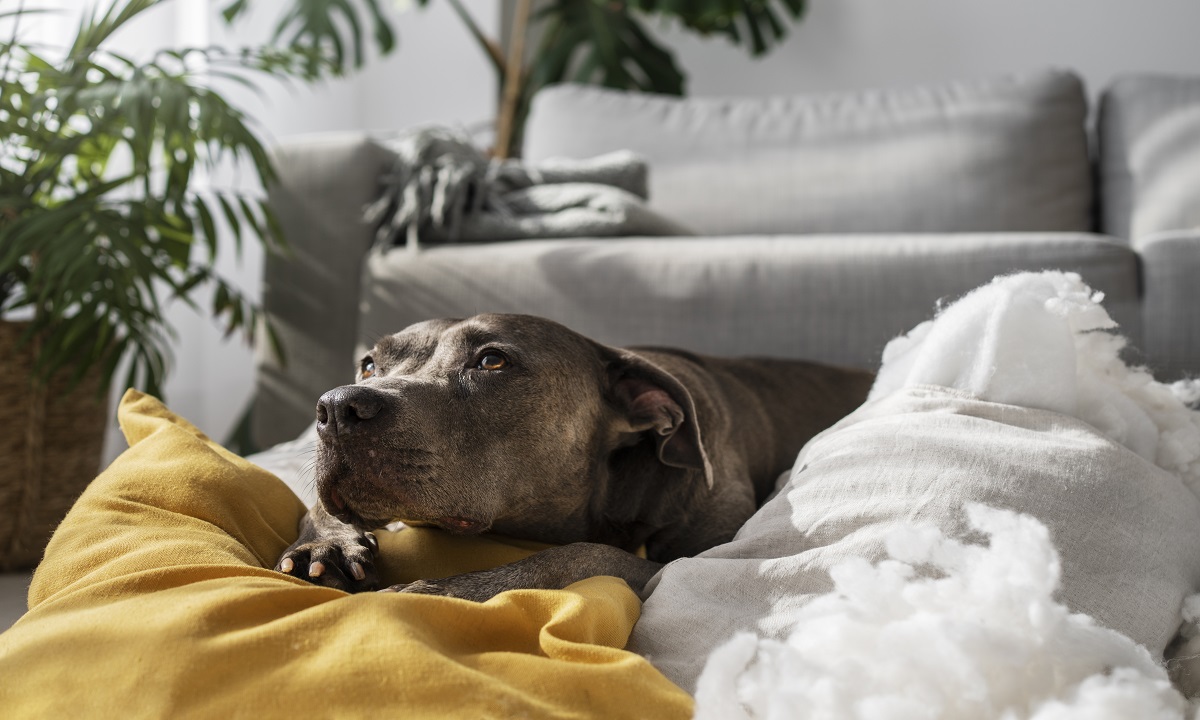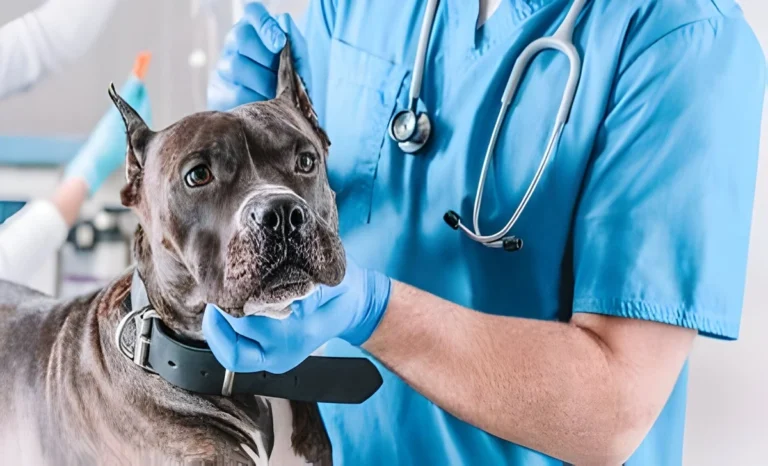If you’ve ever watched your pet suffer from persistent itching or unexplained sneezing, you know how distressing pet allergies can be. we will inform you on how to understanding pet allergies and ways to alleviate them Not only do they affect your furry friend’s comfort and health, but they can also lead to more serious issues if not properly managed. In this guide, we’ll explore the causes, symptoms, and solutions for pet allergies, and offer some expert tips and product recommendations to help you and your pet live more comfortably.
Table of Contents
ToggleWhat are Pet Allergies?
Pet allergies occur when your pet’s immune system mistakenly identifies a harmless substance as a threat and overreacts to it. This overreaction can lead to a variety of uncomfortable and sometimes serious symptoms.
Common Allergens
Let’s explore the common allergies of pets:
Understanding Pet Food Allergens
Pets can develop allergies to specific proteins found in their food. Common food allergens include:
– Beef
– Dairy products
– Chicken
– Eggs
– Wheat
– Soy
Environmental Allergens
Environmental allergens can be found both indoors and outdoors. Common sources include:
– Pollen from trees, grasses, and weeds
– Dust mites
– Mold spores
– Animal dander
Flea Allergies
Understanding pet allergies, flea saliva can cause severe allergic reactions in pets, known as flea allergy dermatitis. Just one flea bite can trigger intense itching and discomfort.
Contact Allergens
Certain materials and chemicals can cause allergic reactions when they come into contact with your pet’s skin. These might include:
– Certain fabrics
– Cleaning products
– Pesticides
– Shampoos
Understanding Causes of Pet Allergies
There are many causes of pet allergies. We described the common reasons for pet allergies:
Genetic Factors
Understanding pet allergies, some breeds are more prone to allergies due to their genetic makeup. Breeds like Retrievers, Terriers, Setters, and Bulldogs are often more susceptible to developing allergies.
Environmental Factors
Exposure to allergens in the environment, such as pollen or dust mites, can trigger allergic reactions in pets. Seasonal changes can also play a significant role.
Dietary Factors
Certain ingredients in pet food can cause allergic reactions. Identifying and avoiding these ingredients is crucial for managing food allergies.
Symptoms of Pet Allergies
Let’s explore the common symptoms of pet allergies:
Understanding pet allergies, recognizing the symptoms is the first step toward effective management. Symptoms can vary depending on the type of allergy and the individual pet.
Skin Symptoms
Itching and Scratching
Persistent itching and scratching are common signs of allergies in pets. Look out for excessive licking, biting, or scratching, particularly around the face, paws, and ears. Understanding Pet Allergies.
Red, Inflamed Skin
Inflamed skin, often accompanied by hot spots (areas of skin that are red, moist, and irritated), can indicate an allergic reaction.
Digestive Symptoms
Vomiting
Food allergies can cause gastrointestinal upset, leading to vomiting. This is a clear sign that something in your pet’s diet isn’t agreeing with them.
Diarrhea
Understanding pet allergies, loose stools or diarrhea can also be a sign of food allergies. Consistent digestive issues should prompt a closer look at your pet’s diet.
Respiratory Symptoms
Sneezing
Environmental allergens can cause sneezing and other respiratory issues in pets. If your pet is sneezing frequently, it might be reacting to something in its environment.
Coughing
A persistent cough may indicate an allergic reaction, particularly to inhaled allergens like dust or pollen.
Behavioral Changes
Increased Irritability
Understanding pet allergies, allergic pets may become more irritable due to constant discomfort. If your normally placid pet is suddenly irritable, it might be due to underlying allergies.
Restlessness
Restlessness and difficulty sleeping are common in pets with allergies. This is often due to itching and discomfort preventing them from settling down.
Diagnosing Pet Allergies
Accurate diagnosis is essential for effective treatment and management of pet allergies. Understanding Pet Allergies.
Veterinary Consultation
Consulting a veterinarian is crucial for diagnosing and managing pet allergies. They can provide expert advice and conduct necessary tests to identify the specific allergens affecting your pet.
Allergy Testing
Skin Tests
Skin tests can help identify specific allergens causing reactions in pets. Small amounts of potential allergens are introduced to the skin, and any reaction is monitored.
Blood Tests
Blood tests measure the immune system’s response to various allergens. Understanding Pet Allergies. These tests can be particularly useful for identifying environmental and food allergies.
Elimination Diets
Elimination diets involve removing potential allergens from the pet’s diet and gradually reintroducing them to identify the culprit. This method can be time-consuming but is very effective.
Record Keeping
Understanding pet allergies, keeping a diary of symptoms and potential triggers can help in diagnosing and managing allergies effectively. Note when symptoms occur, what your pet was exposed to, and any changes in their environment or diet.
Solutions and Management of Pet Allergies
Let’s explore the solution and management of pet allergies:
Dietary Changes
Hypoallergenic Pet Food
Understanding pet allergies, switching to hypoallergenic pet food can significantly reduce allergic reactions. These foods are formulated to avoid common allergens and provide balanced nutrition.
Benefits:
– Reduces gastrointestinal and skin reactions
– Provides essential nutrients without triggering allergies
– Improves overall health and well-being
Nutrition Profile:
– Novel proteins (e.g., duck, venison)
– Grain-free options
– Limited ingredient diets to minimize exposure to potential agllerens
Environmental Controls
Regular Cleaning
Understanding pet allergies, regular cleaning can help reduce the presence of dust mites and other allergens in your home. Focus on vacuuming carpets, washing pet bedding, and dusting surfaces.
Use of Air Purifiers
Air purifiers can remove allergens from the air, creating a healthier environment for your pet. Look for purifiers with HEPA filters, which are highly effective at trapping small particles.
Benefits:
– Reduces airborne allergens
– Improves air quality
– Can alleviate respiratory symptoms in pets
Grooming Practices
Regular Baths with Hypoallergenic Shampoos
Bathing your pet with hypoallergenic shampoos can soothe irritated skin and remove allergens. Be sure to choose products specifically designed for pets to avoid further irritation.
Benefits:
– Soothes and moisturizes skin
– Removes allergens from the coat
– Reduces itching and scratching
Keeping Pets Well-Groomed
Regular grooming helps to keep your pet’s coat healthy and free from allergens. Brushing your pet’s coat removes loose fur and dander, which can reduce allergic reactions.
Medications and Treatments
Over-the-Counter Antihistamines
Antihistamines can help reduce allergic reactions and are often recommended by veterinarians. Always consult your vet before administering any medication to ensure it’s safe for your pet. Understanding Pet Allergies.
Prescription Medications
For severe allergies, veterinarians may prescribe stronger medications to manage symptoms. These might include corticosteroids, which can reduce inflammation and provide relief.
Natural Remedies and Supplements
Natural remedies and supplements, such as omega-3 fatty acids, can support skin health and reduce inflammation. These supplements can be a great addition to your pet’s diet to help manage allergies.
Benefits:
– Supports overall health
– Reduces inflammation
– Improves skin and coat condition
Preventing Pet Allergies
The effective ways of preventing per allergies:
Early Exposure
Gradual introduction to potential allergens can help build tolerance in pets. Controlled exposure, especially during the early stages of life, can reduce the likelihood of developing allergies.
Healthy Lifestyle
Maintaining a balanced diet and regular exercise can strengthen your pet’s immune system, making them less susceptible to allergies. A healthy lifestyle promotes overall well-being and resilience.
Regular Vet Check-ups
Routine health checks are crucial for early detection and management of allergies. Regular visits to the vet can help catch potential issues before they become serious problems. Understanding Pet Allergies.
Understanding Different Types of Pet Allergies
Let’s understand the different types of pet allergies:
Food Allergies
Common Food Allergens
Pets can develop allergies to specific proteins in their food. The most common allergens include beef, dairy, chicken, eggs, wheat, and soy.
Symptoms Specific to Food Allergies
Food allergies often manifest as gastrointestinal issues such as vomiting and diarrhea, as well as skin problems like itching and inflammation.
Diagnosis and Management
Elimination diets and allergy testing can help identify the specific food allergens affecting your pet. Once identified, avoiding these allergens is key to managing the allergy.
Flea Allergies
How Flea Bites Trigger Allergies
Flea saliva contains proteins that can trigger allergic reactions in pets. Even a single flea bite can cause intense itching and discomfort.
Symptoms and Diagnosis
Common symptoms of flea allergies include intense itching, red and inflamed skin, and hair loss, particularly around the tail and lower back. Flea allergy dermatitis can be diagnosed through a physical exam and by identifying flea dirt or the fleas themselves.
Prevention and Treatment
Preventing flea infestations is crucial. Use flea control products year-round, and keep your pet’s environment clean. Treatment may include flea baths, topical treatments, and medications to relieve itching.
Environmental Allergies
Seasonal Allergies
Just like humans, pets can suffer from seasonal allergies. Common culprits include pollen from trees, grasses, and weeds. Symptoms often worsen during specific seasons.
Year-Round Environmental Allergens
Dust mites, mold spores, and animal dander can cause year-round allergies in pets. Managing these allergens involves regular cleaning and maintaining a healthy living environment.
Managing Environmental Allergies
Regular cleaning, use of air purifiers, and maintaining good grooming practices can help manage environmental allergies. Your vet may also recommend medications or allergy shots to alleviate symptoms.
The Role of Nutrition in Pet Allergy Management
Let’s explore the role of nutrition in pet allergies:
Balanced Diet
A well-balanced diet is crucial for preventing and managing allergies. High-quality, balanced nutrition supports overall health and strengthens the immune system.
Nutritional Supplements
Supplements like omega-3 fatty acids and probiotics can help manage allergies by reducing inflammation and supporting skin health. These supplements can be easily added to your pet’s diet.
Tips for Pet Owners
Here are some effective tips for pet owners:
Home Environment
Creating a hypoallergenic home environment can significantly reduce your pet’s exposure to allergens. Use allergen-proof bedding, vacuum regularly, and keep your pet’s living area clean.
Outdoor Precautions
When outdoors, be mindful of potential allergens. Avoid areas with high pollen counts and use protective gear if necessary. After outdoor activities, wipe your pet’s paws and coat to remove allergens.
Regular Monitoring
Monitor your pet’s health and behavior closely. Keep track of any changes in their symptoms or environment. Early detection and intervention can prevent allergies from worsening.
Conclusion
Understanding and managing pet allergies can seem daunting, but with the right knowledge and tools, you can significantly improve your pet’s quality of life. Remember to consult your vet for accurate diagnosis and treatment plans, and consider using recommended hypoallergenic products to alleviate your pet’s discomfort. Your furry friend’s health and happiness are worth every effort!
(FAQs)
What are the most common allergens for pets?
Pets can be allergic to a variety of substances, including certain foods, pollen, dust mites, mold spores, and flea bites.
How can I tell if my pet has allergies?
Look for symptoms such as itching, scratching, red and inflamed skin, vomiting, diarrhea, sneezing, coughing, and changes in behavior
Can pet allergies be cured?
While there is no cure for pet allergies, they can be managed effectively with the right combination of dietary changes, environmental controls, medications, and grooming practices.
What are the best hypoallergenic pet foods?
Some of the best hypoallergenic pet foods include those made with novel proteins like duck or venison, and grain-free formulas.
How often should I bathe my pet if they have allergies?
It depends on the severity of the allergies, but generally, bathing your pet every 1-2 weeks with a hypoallergenic shampoo can help manage symptoms.





